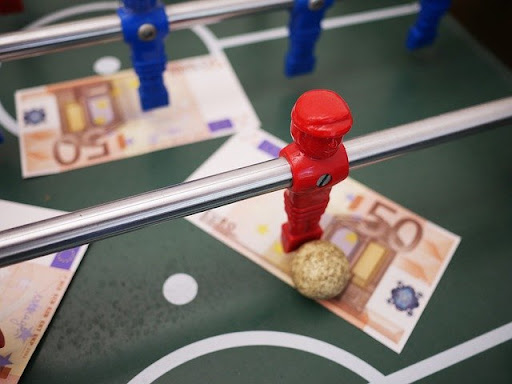Gambling on sports is a pastime as old as civilization itself. The first recorded instance of someone placing a bet on the outcome of a sporting event comes from the ancient Greeks, who would place wagers on chariot races. From there, it was only a matter of time until other forms of gambling caught on, and soon just about every major sport in the world had its betting market.
Today, sports betting is a multibillion-dollar industry, and online bookmakers are taking an ever-growing share of that pie. So if you're thinking about getting into the action, where do you start? In this article, we'll walk you through the basics of how to bet on sports. We'll cover everything from understanding odds to making smart bets to avoiding scams. By the time you finish reading, you'll be ready to hit the books (or the internet) and start making some serious profits!

|
What is sports betting, and how does it work?
Sports betting is the act of wagering on the outcome of a sporting event. Learning about different sports betting websites allows you to learn the technical aspect of betting through these platforms, what are their benefits and disadvantages. Finding a good source of information has been the key to raising the odd chances in your favor. For example, some websites might accept Bitcoin or other crypto values, while on the other hand, their credit card fees might be significantly higher. Betting is quite a complex process even without the aspect of modern payments because bookmakers set odds for each team or athlete, and bettors can choose to either back or lay a bet. If the bettor's selection wins, they will receive a payout based on the odds set by the bookmaker. If the selection loses, the bettor will lose their stake.
Bookmakers make money by charging a commission on winning bets, also known as the “juice” or “vig.” For example, if two teams are playing and one is favored to win, the bookmaker may set the odds at 1.90 for that team to win. This means that for every $1 you bet on that team, you would win $1.90 if they won. However, if you bet on the underdog, and they won, you would only win $0.90 for every $1 you bet since the bookmaker is favoriting the other team. In this way, the bookmaker ensures that they always make a profit, regardless of who wins the game.
How to read sports betting odds?
The first thing you need to know when sports betting is how to read odds. Odds represent the likelihood of an event occurring, and they are usually expressed as a ratio or a decimal number. For example, the odds of flipping a coin and landing on heads are 1:1, or 2.0 in decimal form. This means that for every 1 time you flip the coin, you can expect it to land on heads 2 times.
The odds of a team winning a game are usually expressed as a decimal number, such as 1.5 or 2.0. This means that for every $1 you bet on the team, you would win $1.50 if they won (or $2 if they won). If the odds are expressed as a ratio, such as 3:2, this means that for every 3 times your bet on the team, you would win 2 times.
To calculate how much money you stand to win or lose on a bet, you need to multiply your stake by the odds. For example, if you bet $10 on a team with odds of 1.5, you would win $15 if they won. If the team had odds of 2.0, you would win $20.
It's important to note that bookmakers will often change the odds to balance their books or to take into account factors that may affect the outcome of the game. For example, if one team is heavily favored to win, the bookmaker may increase their odds to attract more bets on the other team. This is why it's important to shop around for the best odds before placing your bet.
What are some common types of bets?
There are dozens of different types of bets that can be placed on sporting events, especially today, but here are some of the most common:
How to make smart bets?
The key to winning money in sports betting is to make smart bets. This means knowing what you're doing and not letting your emotions get in the way. The higher the odds, the less likely it is to happen. For example, it's very unlikely that you will flip a coin and have it land on heads 100 times in a row. However, it's still possible, no matter how unlikely it may seem.
Bookmakers will often change the odds to balance their books or to take into account factors that may affect the outcome of the game. For example, if one team is heavily favored to win, the bookmaker may increase their odds to attract more bets on the other team. This is why it's important to shop around for the best odds before placing your bet.
It can be easy to get caught up in the excitement of a game and bet on your favorite team, even if they're not playing well. However, this is a surefire way to lose money. Always try to bet objectively and with a clear head.

|
Do your research
There's a lot of information out there, and it can be difficult to know who to trust. However, it's important to do your research before placing a bet. This means reading up on the teams, the players, and the conditions that may affect the outcome of the game. The more you know, the better your chances of winning will be.
Remember that sports betting should be about having fun and enjoying the games. Don't risk more money than you can afford to lose, and don't get too upset if you do lose. After all, it's just a game!






